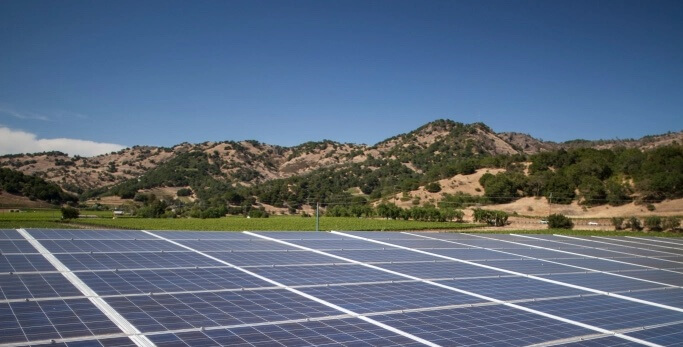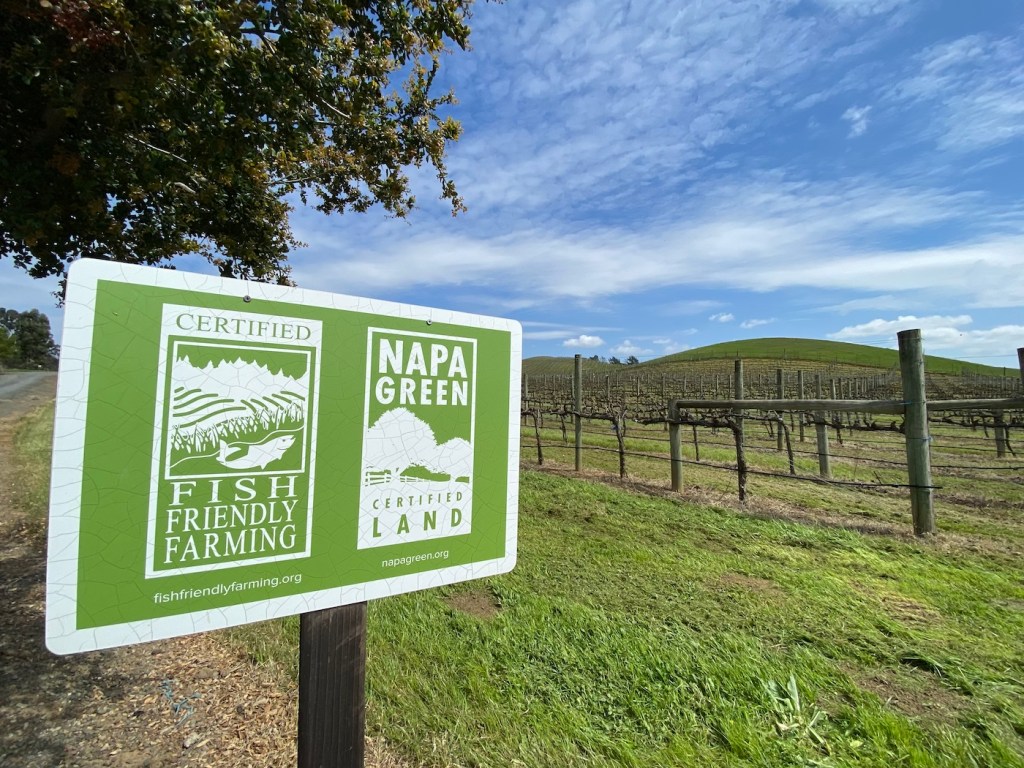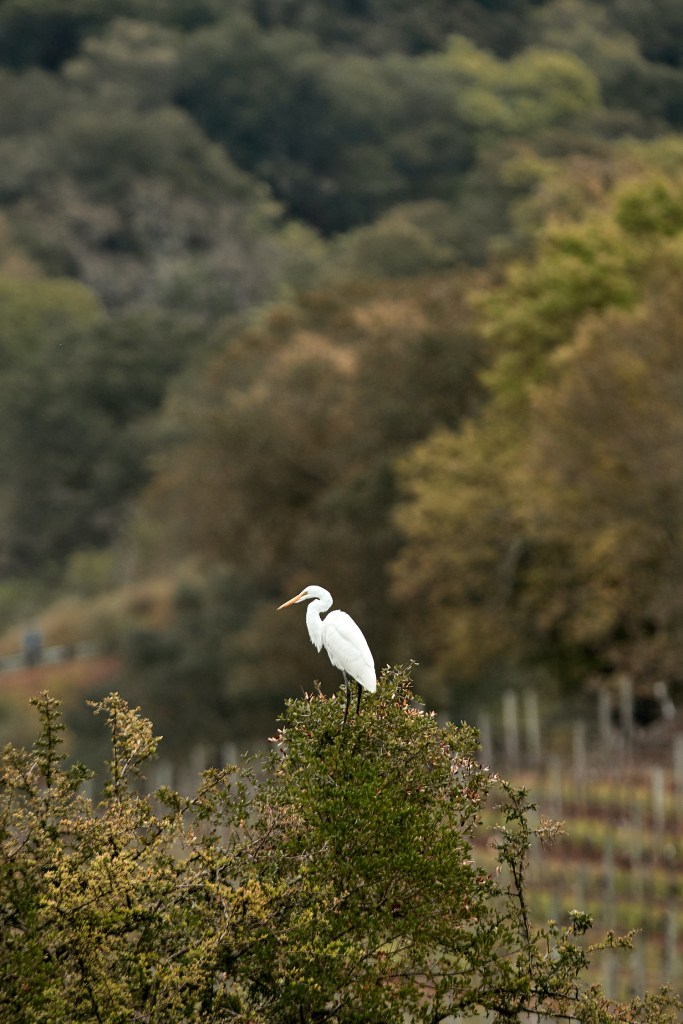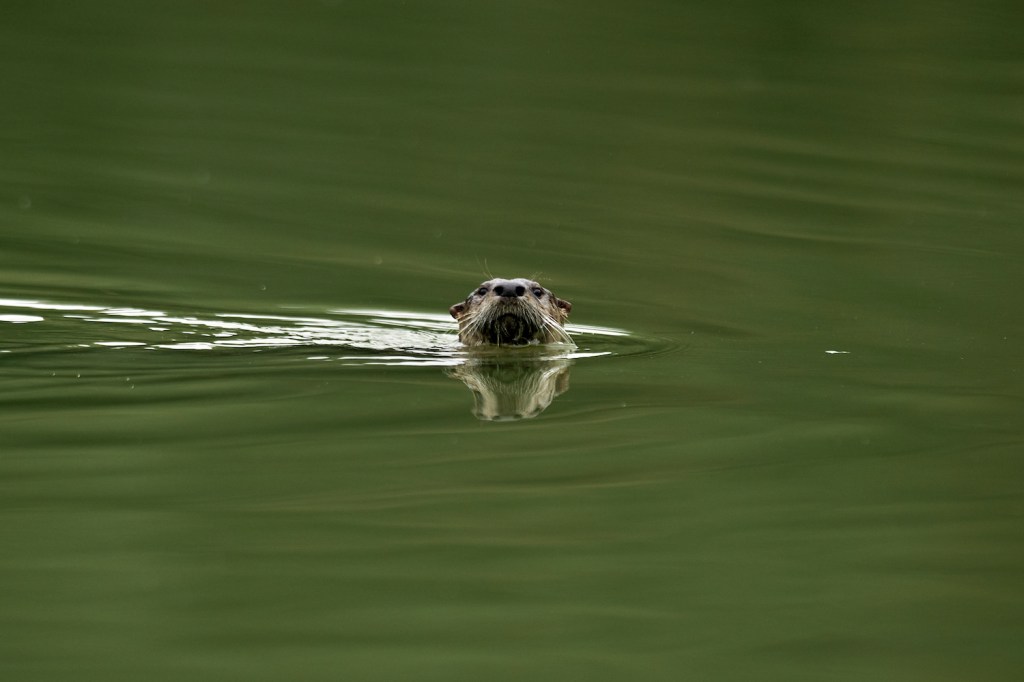Sustainability
Our Commitment to Sustainability
Silverado Vineyards has been implementing sustainability efforts since its founding in 1981 – protecting the air, water and land in Silverado’s care and supporting the community that surrounds the winery. Key initiatives include energy conservation via solar power, conserving water through innovative irrigation processes and remaining stewards of the land on the winery’s estate. These ongoing measures have reduced the winery’s carbon footprint by nearly half since 2008. Silverado continues to apply pioneering technologies to improve efficiencies and further develop their use of green energy toward a goal of becoming carbon neutral in the next decade.
100%
of our six estate vineyards are certified Fish Friendly Farming
360 acres
are farmed by Silverado, representing 59% of our total estate
248 acres
of the estate are in their original state of oak woodland, coniferous forest and California chaparral
40%
of the winery’s energy needs are powered by solar
Sustainable Winemaking
A 380,000KwH photovoltaic array produces 36% of the winery’s energy needs. Efficiencies in lighting, cellar cooling, building controls, and water treatment have reduced our electricity demand, reducing our carbon footprint by 40%.


Sustainable Farming
Silverado Vineyards farms 360 acres on six Napa Valley vineyards in the Yountville, Coombsville and Stags Leap District appellations. 100% of the estate is certified Napa Green. Napa Green is the only certification that monitors best practices in the vineyard and the surrounding habitat. We are monitored and audited by a third-party administrator, Fish Friendly Farming. We were among the first twelve estates in the Napa Valley to earn this certification.
Habitat & Biodiversity
The 360 acres we farm represent 59% of our total estate. The remaining 248 acres are in their original state of oak woodland, coniferous forest and California chaparral. Of this, 70% is preserved in land trust easements exclusively for open space and agricultural use in perpetuity.
One important element of our sustainable farming is ensuring that the estate is welcoming to a number of birds, who act as part of our ecosystem in managing insect populations. In addition to protecting their natural habitat, we have a total of 22 owl boxes and 75 bluebird boxes. Other birds present on the estate include herons, mallards, buffleheads, kingfish, widgeons, egrets, Canadian geese, coots and wild turkeys. The estate is home to a wide array of other wildlife, including bobcats, mountain lions, foxes, otters, turtles, beavers, and deer.


Water Use and Fish-Friendly Farming
In 2013, Silverado Vineyards participated in the First Beta Group for a system to quantify the water available to our vines by measuring the water they release as vapor. Measuring the breath of our vines allows us to realize our long-held goal of precision irrigation. The result has been an improvement in grape quality as we reduce our water use.
Silverado Vineyards is a founding member of the Oakville to Oak Knoll River Restoration project. Working closely with the Napa River Flood Project and our northern neighbor, Rutherford Reach Restoration project, we are returning keystone species such as the North American beaver to the Napa River. The result of these longstanding community efforts is a healthy diversity of over 31 species of fish, including increasing runs of steelhead and Chinook salmon.
Our sustainable practices have resulted in the following recognition:
- US Congressional Recognition for Excellence in Water Quality Improvement
- California State Legislator Recognition for Dedication to Environmental Stewardship
- California Sport Fishing Protection Alliance for Excellence in Water Quality Improvement and Protection
